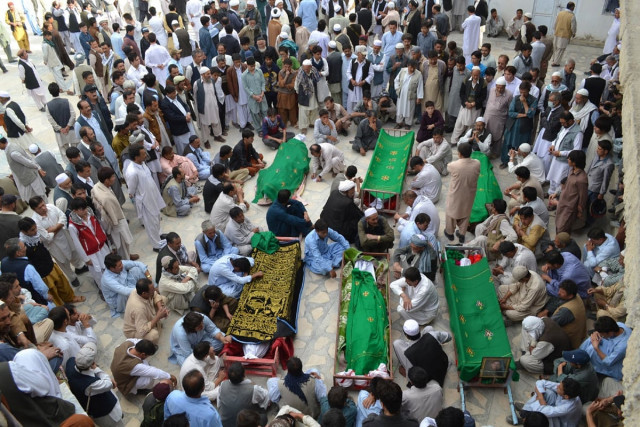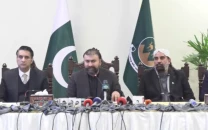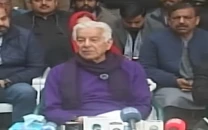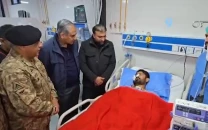Quetta mayhem
The real problem for Hazara is that there are segments administrations which seem to be sympathetic to their killers

Quetta mayhem
On the same day as the murder of eight men on a bus, there were two bombings in and around Quetta. One targeted a Frontier Corps (FC) convoy, killing three and injuring 17 others, mostly civilians. The other, a suicide attack by a man riding a motorcycle, targeted the armoured vehicle of Maulana Fazlur Rehman. He was shaken but otherwise unhurt although an activist of the Jamiat Ulema-e-Islam-Fazl (JUI-F) was killed and 22 others injured. It was the third attempt on the life of Maulana Fazl since 2011. The JUI-F was holding a political rally at the time of the bombing and it is reported that Maulana Fazl has been advised to leave the province. He has refused and the government has now banned all political rallies until further notice. News channels reported that the banned group Jundallah was responsible for the attack, but that is as yet unverified. Jundallah is based in Peshawar and claimed responsibility for the September 2013 bombing of a church that killed more than 80 and injured another 250. It also carried out the Nanga Parbat attack that saw the deaths of 10 foreign climbers.
Whether it is a sectarian attack or an attack on political leaders or the FC, all appear to be carried out with impunity. The law-enforcement agencies appear helpless in the face of sustained attacks and can do little more than clear the streets of body parts. One might wonder, reasonably, if the entire province of Balochistan was now beyond The Pale in terms of law-and-order. It certainly is for the minority communities. The Hindu and Sikh populations in the south and west of the province have been quietly leaving in droves and extremism is now the dominant mindset across the province with no countervailing narrative being developed.
It would be fair to say that the Shia community has suffered tremendously in recent years. Successive governments have failed to protect them, or catch and punish their killers. Whether it is buses travelling on the Karakoram Highway or the targeted killing of teachers, doctors, lawyers and business people, young and old, rich and poor, men, women and children — all are targets for the killers. Political leaders wring their hands and shed crocodile tears at every mass killing; the police lament their lack of resources or resort to blaming the victim. In the most recent incident, a police officer is quoted to have said that the “real problem for Hazaras is that they are easily identifiable” — as if their facial characteristics alone were ‘their fault’ and thus invited murder. The real problem for the Hazara is that there are segments of both government and local administrations, which seem to be sympathetic to their killers. We expect no early change.
Published in The Express Tribune, October 25th, 2014.
Like Opinion & Editorial on Facebook, follow @ETOpEd on Twitter to receive all updates on all our daily pieces.



















COMMENTS
Comments are moderated and generally will be posted if they are on-topic and not abusive.
For more information, please see our Comments FAQ